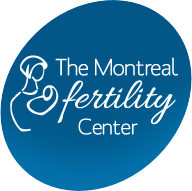FAQ
Do I need a referral in order to book a consultation?
No, you do not need a doctor’s referral in order to book a consultation.
How much does the consultation cost?
For women with a valid Quebec RAMQ (medicare) card the consultation is free. If you do not have a valid RAMQ card then the consultation costs $300.
What information should I have available when I call or email to book a consultation?
We will need the exact spelling of your name and your partner’s name as it appears on your Quebec RAMQ (medicare) cards. We will also need your date(s) of birth and a phone number that we can use, if necessary, to call you back.
If you are trying to schedule your first consultation or a review discussion with the doctor please be aware that due to COVID all first consultations and reviews are now arranged by email and then done with the doctor by phone.
To schedule a first consultation or review visit please email us your full name (as it appears on your RAMQ card) and date of birth. Please tell us exactly how long you have been trying to have a child and whether or not you have had any previous fertility testing/treatment.
If you have already done any fertility testing or treatment elsewhere then please email us a complete copy of your file. We also request a copy of your most recent Pap test(s), and copies of any previous surgery/pathology reports.
Please note that some fertility centers separate female and male test results into separate files. In this case please be sure to request copies of BOTH files as the female file may not contain the male results such as previous semen analyses or blood tests.
Where can I park?
Unfortunately, there is no public parking within the building. We are, however, conveniently located just a few steps away from the Vendome metro. If you choose to drive you can either look for parking on the side streets of de Maisonneuve, or you can use the pay parking lot located on Northcliffe between Sherbrooke and de Maisonneuve.
Can all my fertility testing be done at the Montreal Fertility Centre?
We can do semen analyses, ultrasounds and sonohysterograms on site. Blood tests will need to be done at a hospital, CLSC or private lab.
Please see our price list for the costs of a semen analysis, testing ultrasound or sonohysterogram.
Please also note that patients with a valid Quebec RAMQ (medicare) card may also be able to arrange these tests in the public system.
How much do fertility treatments cost?
Please see the section on our website that details our current prices.
Are the costs of fertility medications covered by the government?
Virtually all medications used in the treatment of infertility are classified by the government as medicament d’exception (exceptional use). Thus, in order for these medications to be covered by private insurance or the RAMQ a Medicament d’Exception form must first be completed by the treating physician.
Once you receive this form you need to FAX it to your private insurance company (if you have private insurance) or to the RAMQ (ONLY if you do NOT have private insurance). If you have private insurance you should check with your insurance company to know exactly what is covered. Most private companies cover 80% of the cost. By law private insurers MUST cover at least 67% of the cost. If you do NOT have private insurance then the RAMQ covers the medication costs minus a monthly co-pay of approximately $80.
Are there any things that I can do to enhance my fertility?
Women attempting conception should take a daily folic acid supplement or a prenatal vitamin containing folic acid. Folic acid is important to reduce the risk of having a child born with a spinal cord or brain malformation.
You should also refrain from smoking or drinking alcohol, and limit your caffeine intake to one cup per day.
Body weight is also extremely important. You may want to use this Website to calculate your body mass index (BMI).
Women with an elevated BMI (30 or more) have reduced fertility and are at increased risk of miscarriage, maternal diabetes, hypertension in pregnancy, cesarean section, wound infection, fetal malformations and neonatal death. For all of these reasons if your BMI is over 30 you should do your best with diet and exercise to lose weight.
Women with a BMI under 18.5 also have reduced fertility. If your BMI is under 18.5 then you should adjust your diet to bring it to a healthier range.
What are the chances of natural conception?
The answer depends on your age and how long you have been trying. Women age 20-35 with no history of infertility have approximately a 30% chance of conception per month the first 2 months that they try to conceive. However, if they are still trying after 2 months then their chance of conception drops to 20% per month in months 3-5, 8% per month in months 6-8, and 4% per month in months 9-12. Thus, by the time that a young couple has been attempting conception on their own for 1 year the monthly chance of natural conception has declined to 4% or less.
In women over age 35, and particularly in women over 40, the monthly chance of natural conception drops to 4% even more rapidly.
For this reason, we recommend a fertility consultation:
- In women age 35 and younger if you have been attempting conception for over 1 year
- In women age 35-39 if you have been attempting conception for over 6 months,
- In women 40 and older as soon as you begin attempting conception
